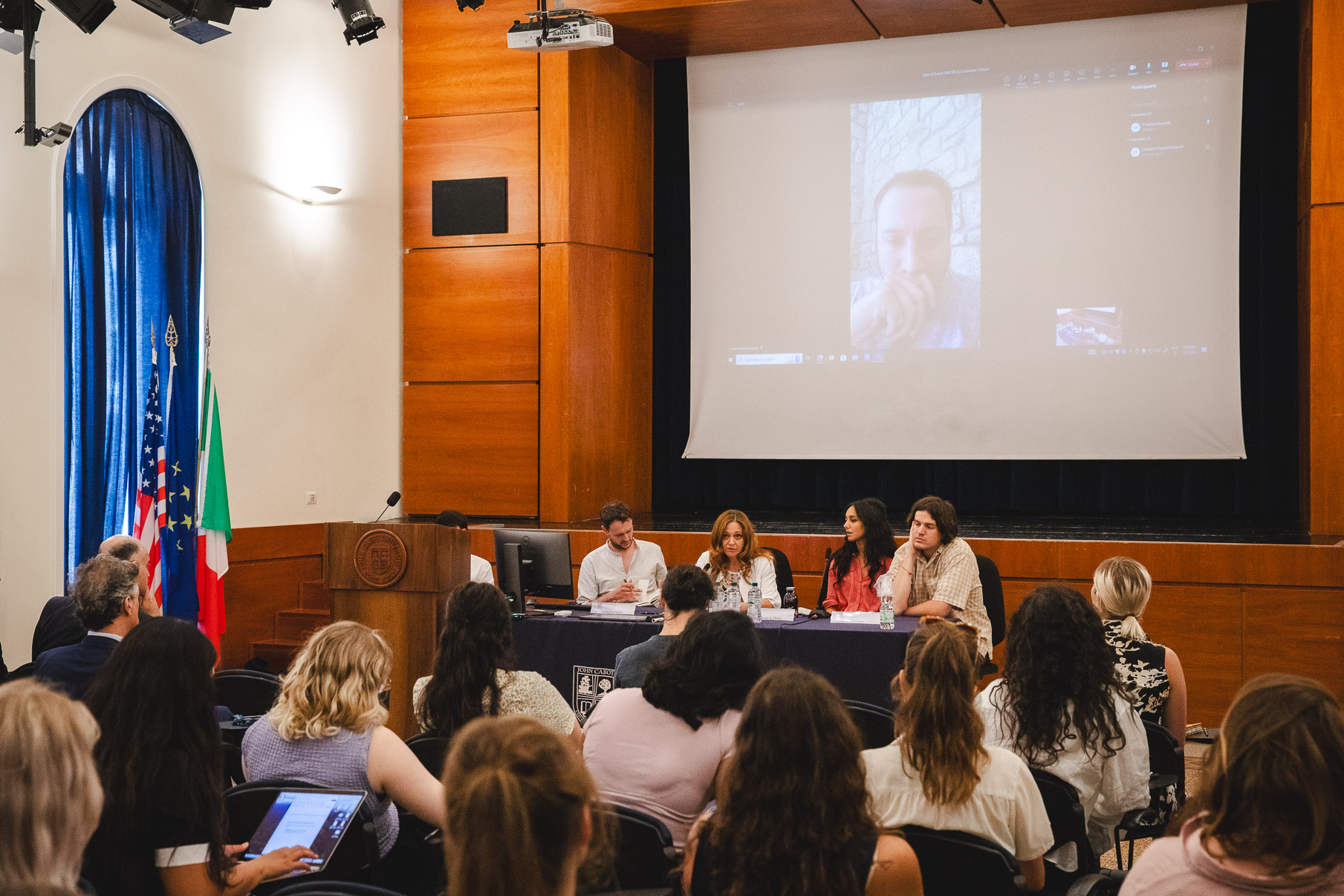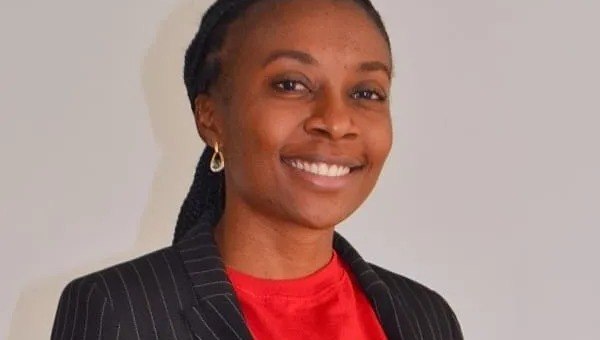Summer School on Migration and Human Rights Kicks Off with Agàpe Documentary
On July 8, 2024, the United Nations Interregional Crime and Justice Research Institute (UNICRI) and John Cabot University organized the special event “Beyond Borders: Unveiling the Human Stories of Migration” to kick off the Ninth Edition of the Summer School on Migration and Human Rights. The event was centered on the screening of the documentary Agàpe (which means “love” in Greek), directed by Velania A. Mesay and Tomi Mellina Bares and coproduced by ConfrontiKino, and was followed by a panel discussion. The film chronicles the experiences of migrants stranded for years in Lesbos and Cyprus, the first port of call to enter Europe.

Agàpe’s filmmakers traveled across Europe for over two years, conducting several interviews with migrants and asylum seekers to disclose their often overlooked personal, familial, and intimate stories. By capturing the voices of migrants and asylum seekers stranded in Lesbos and Cyprus, Agàpe portrays love as a form of resistance and perseverance, irrespective of difficulties, trauma and pain.
In her opening remarks, Mary Merva, JCU Vice President of Academics and Professor of Economics, reminded participants to remain inspired and courageous in their quest to help the most vulnerable individuals. Cristina Nardelli, Senior Fellow at UNICRI’s Rome Liaison Office, emphasized the importance of the Summer School, which is in line with the United Nations 2030 Agenda and UNICRI’s mandate, including the fight against human trafficking and migrant smuggling and the promotion of policies on migrants’ security.
After the screening, the moderator Silvia Scarpa, Chair of JCU’s Department of Political Science and International Affairs and Associate Professor of International Relations opened the discussion with Agàpe’s filmmakers, Velania A. Mesay and Tomi Melina Bares, who both highlighted how the documentary delves into the contrasting narratives surrounding migrants and asylum seekers. Mesay and Bareschose focus on the universal theme of love, a concept relatable to everyone regardless of gender, age, citizenship, or background.
Claudio Paravati, Director of Confronti magazine, connected online and explained that Confronti, founded 36 years ago in Rome, means “dialogues” in Italian and was created as a free space for open discourses, especially for journalists from various countries and backgrounds. Supporting the documentary Agàpe was a natural choice for Confronti, given its focus on migration, an often-examined topic in the magazine. Paravati emphasized that Agàpe shifts the narrative from viewing migrants and asylum seekers as mere subjects on the move to recognizing them as individuals with personal stories, emotions, and a desire for love. This unique perspective is what makes Agàpe so compelling and powerful.
Finally, Carlo Caprioglio, Adjunct Professor of Law at Roma Tre University, discussed the work of Legal Clinics and how they support marginalized social groups, including migrants and asylum seekers. Legal Clinics may face difficulties in legal systems that hinder the migrants’ and asylum seekers’ ability to litigate for their rights, posing significant challenges for lawyers supporting them and risking undermining the foundations of democracies.





